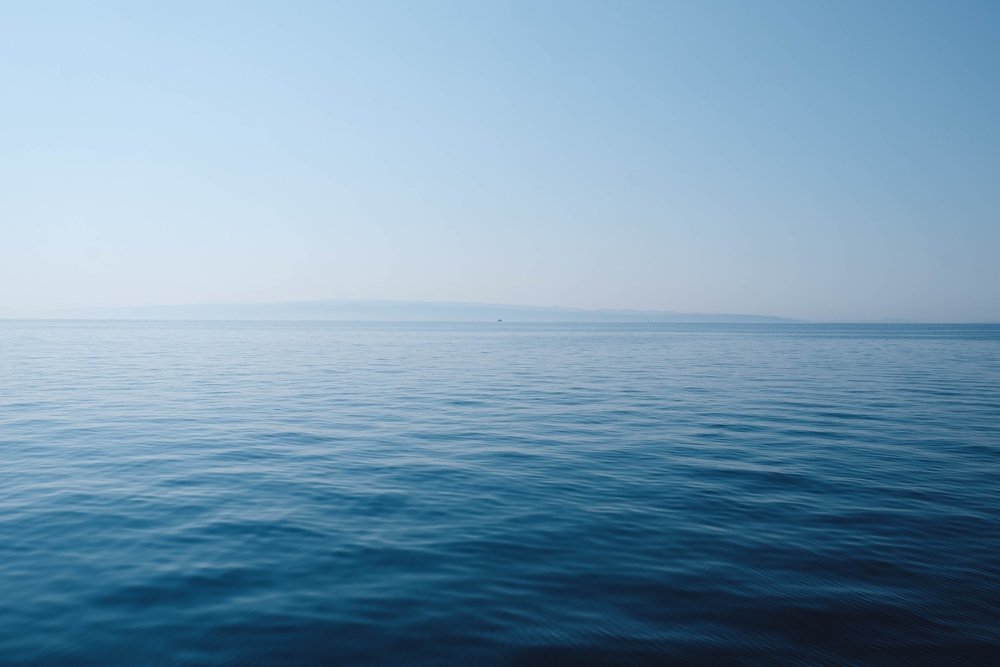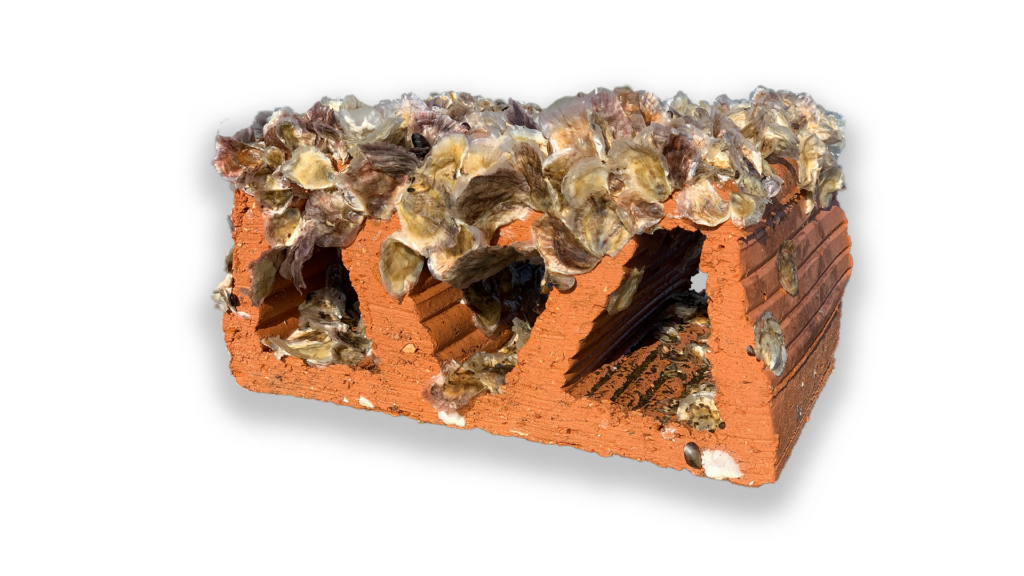
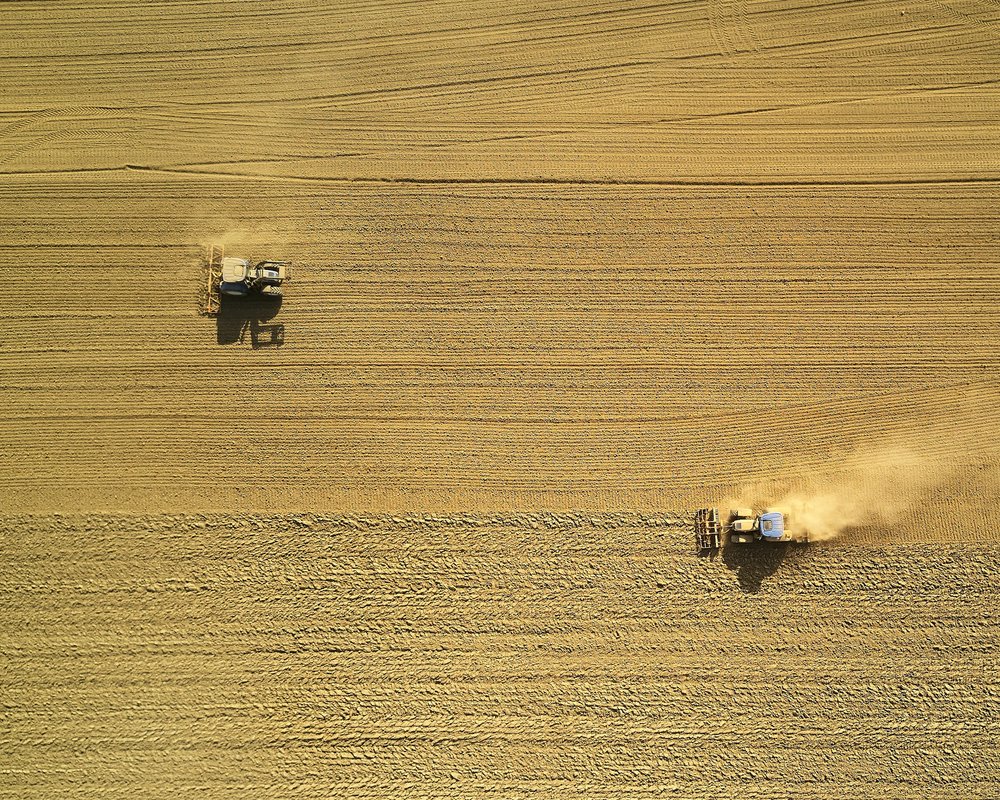
Carbon is just the first global anthropogenic chemical imbalance that needs to be addressed. Our addiction to Nitrogen based fertiliser will be the next.
Carbon is mined from the ground where it is bound up in the form of fossil fuels and emitted into the atmosphere. This has famously caused an excessive build up of the molecule and caused global warming. There is a grand list of other issues getting little attention on the world stage. I think one of the next to gather attention will be nitrogen, and the problem is almost the opposite.
Nitrogen is the key chemical in our agricultural system. Since the Haber Bosch process was developed in the 1900s our global food production system was revolutionised. Rather than waiting for natural processes, we have been able to pluck this essential chemical from the atmosphere and put it into our soils in an incredibly cheap manner. Global farming yields increased 8x in the 20th Century and as a result has taken famine off the table for billions across the world. In terms of the great changes in society, this might be one of the most important.
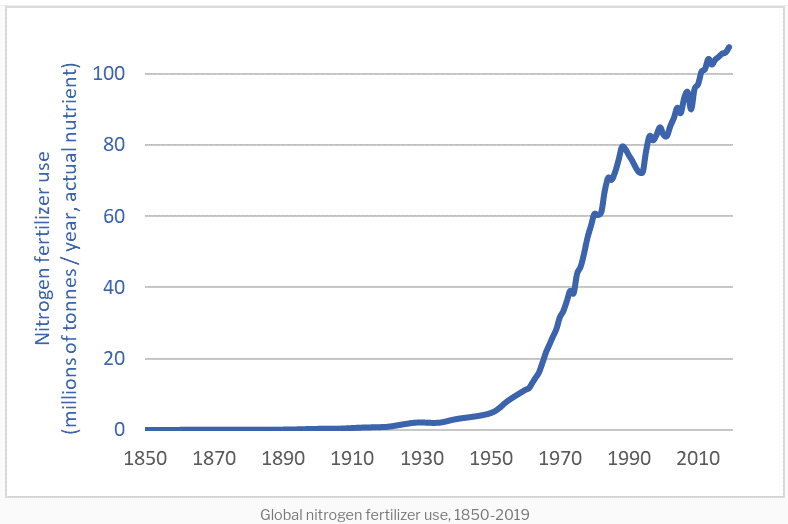
From Darrin Qualman ‘The Nitrogen Crisis’
However, cheap fertiliser has led to over-application. Excess nitrogen is damaging both on land and in water. In 2019, in 118 of 162 Dutch nature reserves, nitrogen deposits now exceed ecological risk thresholds by an average of 50%. These excess deposits on land lead to the destruction of habitats and biodiversity loss as plants specialised in growing in nitrogen deficient soils are outcompeted by weeds and grasses. In the ocean, the problem is as severe if not worse. Algal blooms causing hypoxia and marine dead zones are getting worse each year. In coastal areas or in inland seas they are catastrophic for all the resilience healthy marine ecosystems provide to our societies. They are a direct consequence of our lifestyle.
This has gained recognition, policy changes and headlines. The Dutch government in 2019 set out hard caps on nitrogen. These measures were set out to protect the Natura 2000 conservation areas, both on land and in the ocean. This ripple effect from these caps have caused homebuilding to decline by almost 40% and infrastructure projects worth around EUR14Bn put on hold. Farmers drove a convoy of tractors to Den Haag to protest the proposed adjustments to livestock numbers. “It has really paralyzed the country,” says Jeroen Candel, a political scientist at Wageningen University & Research. Newspapers everywhere have been dubbing this the ‘nitrogen crisis’.
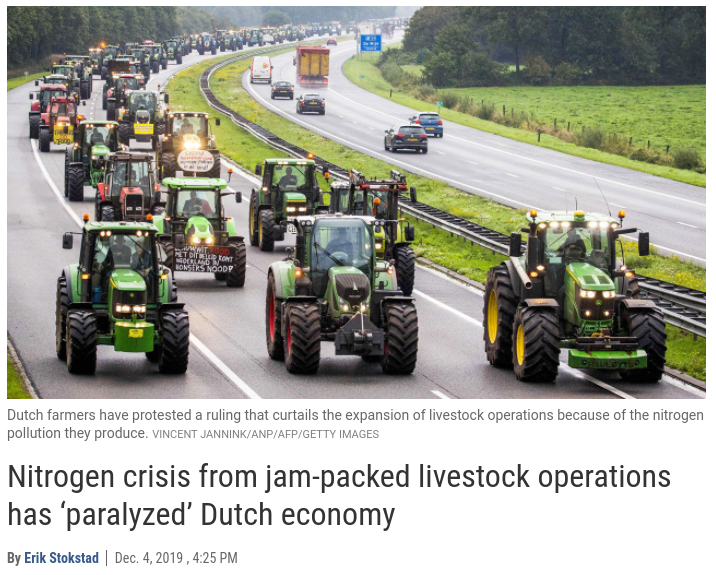
This problem is not going anywhere, we depend upon nitrogen for far more than is immediately recognised. Our society’s addiction to Nitrogen has been laid out plainly. If drug rehabilitation is anything to go by, cold turkey is pretty traumatic. Yet, there seem to be few solutions to provide some sort of weaning off. Interestingly the Netherlands seems to be the only country in Europe currently allowing nature restoration measures to offset nitrogen emissions. Maybe there is some sort of marine creature that sequesters nitrogen very well?

Make a measurable difference for the ocean today.
You can now adopt a Mother Reef and help restore 100 oysters!

